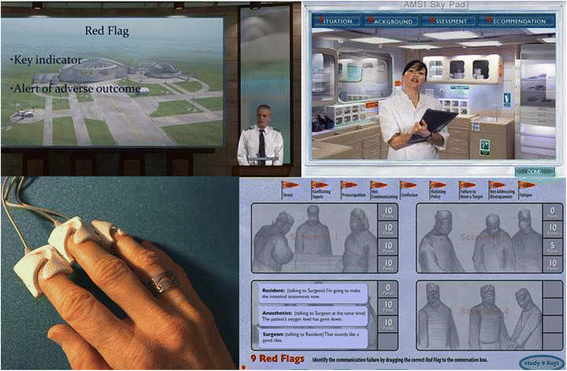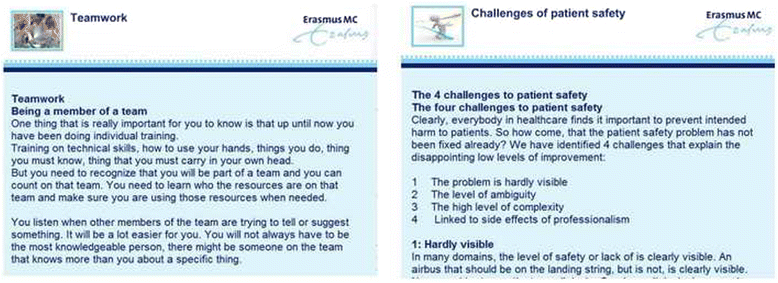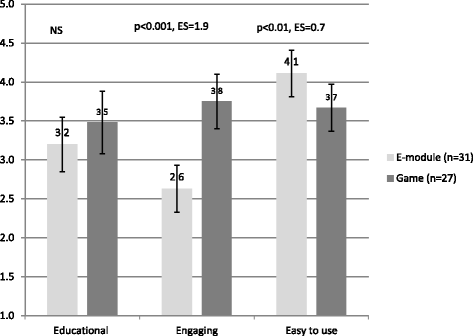Comparative effectiveness of a serious game and an e-module to support patient safety knowledge and awareness
- PMID: 28148296
- PMCID: PMC5289006
- DOI: 10.1186/s12909-016-0836-5
Comparative effectiveness of a serious game and an e-module to support patient safety knowledge and awareness
Abstract
Background: Serious games have the potential to teach complex cognitive skills in an engaging way, at relatively low costs. Their flexibility in use and scalability makes them an attractive learning tool, but more research is needed on the effectiveness of serious games compared to more traditional formats such e-modules. We investigated whether undergraduate medical students developed better knowledge and awareness and were more motivated after learning about patient-safety through a serious game than peers who studied the same topics using an e-module.
Methods: Fourth-year medical students were randomly assigned to either a serious game that included video-lectures, biofeedback exercises and patient missions (n = 32) or an e-module, that included text-based lectures on the same topics (n = 34). A third group acted as a historical control-group without extra education (n = 37). After the intervention, which took place during the clinical introduction course, before the start of the first rotation, all students completed a knowledge test, a self-efficacy test and a motivation questionnaire. During the following 10-week clinical rotation they filled out weekly questionnaires on patient-safety awareness and stress.
Results: The results showed patient safety knowledge had equally improved in the game group and e-module group compared to controls, who received no extra education. Average learning-time was 3 h for the game and 1 h for the e-module-group. The serious game was evaluated as more engaging; the e-module as more easy to use. During rotations, students in the three groups reported low and similar levels of patient-safety awareness and stress. Students who had treated patients successfully during game missions experienced higher self-efficacy and less stress during their rotation than students who treated patients unsuccessfully.
Conclusions: Video-lectures (in a game) and text-based lectures (in an e-module) can be equally effective in developing knowledge on specific topics. Although serious games are strongly engaging for students and stimulate them to study longer, they do not necessarily result in better performance in patient safety issues.
Keywords: Design-based research; Knowledge; Motivation; Patient Safety; Performance; Self-efficacy; Serious games.
Figures
References
-
- Sitzmann T, Kraiger K, Stewart D, et al. The comparative effectiveness of web-based and classsroom instruction: a meta-analyses. Pers Psychol. 2006;59(3):623. doi: 10.1111/j.1744-6570.2006.00049.x. - DOI
-
- Cook DA, Hatala R, Brydges R, et al. Technology-enhanced simulation for health professions education; a systematic review and meta-analysis. JAMA. 2011;55905(September):978–988. - PubMed
Publication types
MeSH terms
LinkOut - more resources
Full Text Sources
Other Literature Sources
Medical




